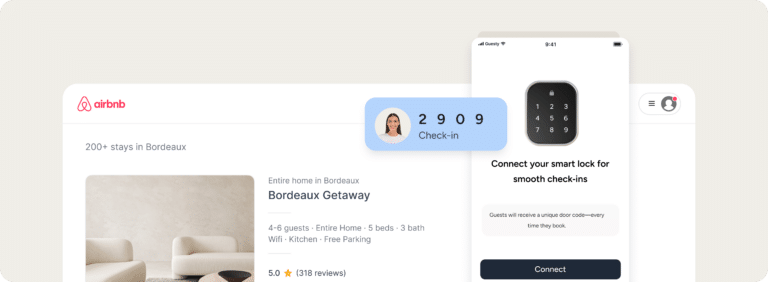If you’re like me, you may be overwhelmed by the amount of business your Airbnb listing is generating. You thought it would be easy but you didn’t take into account the cleaning, decor, expenses, and upkeep. Oh, and taxes, you hate taxes.
Fear not. You’ve officially taken the first step to getting your house in order, literally.
Here’s a painless 5 step process to manage your finances that even Donald Trump could understand.
Step 1. Plan
“Failing to plan is planning to fail.” -Alan Lakein
If you are renting out space on Airbnb, HomeAway, VRBO, or any similar services, don’t attempt to figure out your finances on your own. Talk to your CPA or accountant to get a complete understanding of what you should keep in mind as a host.
There are many things you can do to lower your taxes and make more money — it all comes down to tax deductions.
The more deductions you take, the more you lower your taxable income. Therefore, the less taxes you pay. We recommend speaking to your accountant or CPA to understand and track all of your business expenses. If you want a quick guide on what expenses may be deductible, use our tax guide above and treat it like you’re counting calories.
To give you an idea of what may qualify as a deductible business expense, here is a brief list of some of the items that may be tax deductible if you are listing your home through Airbnb, HomeAway, VRBO or a similar service.
(Note this is not a complete list of deductions and is not considered tax advice from a professional; consult with your CPA, as each case varies).
-
- Utilities used on the portion of the house you rent
- Food for guests
- Management fees
- Marketing costs associated with your Airbnb (Do you have a website?)
- Cleaning and trash removal (Maybe you use Guesty to schedule your cleaning?)
- Maintenance and repairs
Step 2. Keep Separate Bank Accounts
“Financial freedom is available to those who learn about it and work for it.” – Robert Kiyosaki
If you do plan on tracking your revenue and expenses (recommended), think about how difficult it will be to figure out if that ultra soft organic toilet paper you purchased last week was used for personal use or for business. Better yet, try to remember what you purchased last month for your Airbnb.
Difficult right?
Set yourself up for success by separating your personal and business finances.
By doing this, you won’t need to guess which expenses were business related and how much you’re truly making off of Airbnb after your expenses.
More importantly, when it comes time to do your taxes, you’ll have a list of potential deductions on-hand through your bank statements that you could present to your accountant, spending less time with him/her and saving you money.
Step 3. Automate
If you’re not big on keeping receipts and looking at bank statements, good, neither are we. Automate your Airbnb finances using Hurdlr.
Instead of keeping receipts, or a receipt box (What is this? The 90s?), Hurdlr securely links with your bank and credit card and seamlessly manages your finances.
This means no more receipt boxes, no more missed deductions, and above all no more money left on the table.
It also means your accountant will love you because you’ll track all of your business expenses and revenue, and pay your taxes on time.
Step 4. Pay the tax man
“The only two things that scare me are God and the IRS.” – Dr. Dre
Everyone has to pay taxes, and yes, that means you too Mr. Sovereign Citizen. Fortunately, you have two options.
You can pay quarterly or yearly.
Filing your taxes quarterly gives you a better idea of how much you are paying in taxes and helps you avoid a large payment at the end of the year which you may not be prepared for.
It also gives you a reason to meet with your CPA multiple times a year to make sure you’re on track.
When you file quarterly you can catch errors early instead of waiting on the IRS to send you a friendly reminder.
This also saves from compounding tax obligations. i.e. charges building up over the course of the year.
Step 5. Review
Finally, once you’ve followed all of these steps, make sure to sit down and review everything you’ve done.
Stay proactive with your Airbnb finances. Plan, track, and automate your hosting to ensure you’re ready for the ups and downs.
Dale Carnegie has an excerpt in the beginning of his book How To Win Friends and Influence People which perfectly sums up what you should keep in mind.
“This is an action book.” -Dale Carnegie
Well this is an action article. The point is to read it, understand how to take action right now, and make more money (not forget about it a day later).
If you’re interested in using Hurdlr to manage your Airbnb finances, sign up for early access here. It’s free and only takes 6 seconds.





